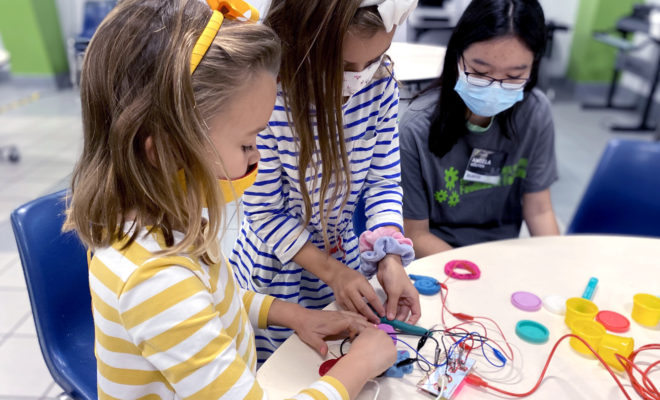
Feature
Leaning in to Innovation at the Suncoast Science Center
By Jordan W. Patterson | May 2021
Back when the world began shutting down due to COVID-19, the Suncoast Science Center made a decision. Rather than close up shop and cancel their 2020 Summer Camp season, they chose to lean into their specialty of innovation and growth.
“We were open. We never closed during COVID,” says executive director and co-founder Ping Faulhaber. “It was amazing—not only were we able to condition students to be adaptable, but we actually showed them how we’re adapting,”
The center has emerged as a pillar of the educational landscape of Sarasota. It hosts educational camps for students from grades 2-8, STEM (Science, Technology, Engineering, Mathematics) Saturdays, and the RC Car Competition, as well making science kits available to local schools through its Science Lending Library.
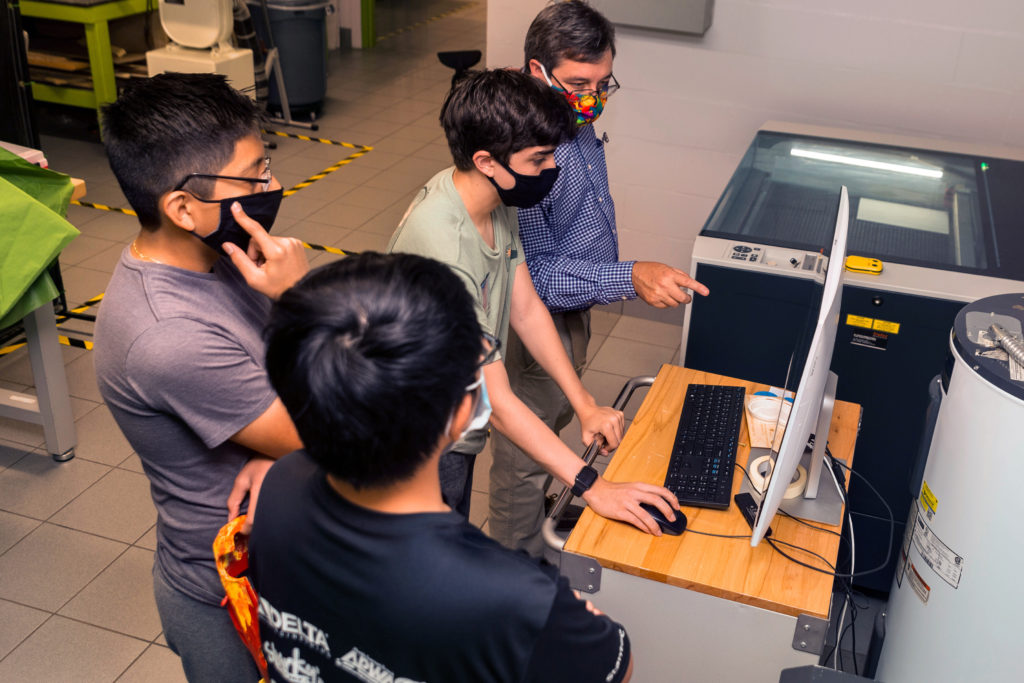
The star of the programs and summer camps is the Faulhaber Fabrication (“Fab”) Lab, comprised of state-of-the-art equipment such as 3D printers, laser cutters, and CNC routers. Many of its programs are designed and managed by high school students.
During the pandemic, says Faulhaber, students were able to see firsthand how to adapt to unprecedented situations. Using equipment at the ready inside the Fab Lab, staff and volunteers were uniquely positioned to make a real impact. Initially, they responded by producing a whopping 2,521 face masks and 2,351 face shields that were later distributed to dozens of healthcare facilities, first responder organizations, doctors’ offices, and nonprofit organizations. To complete such a task, more than $40,000 was raised to support the project through the assistance of the Johnson Singer Foundation, the Gulf Coast Community Foundation, and the Charles & Margery Barancik Foundation COVID-19 Response Initiative.
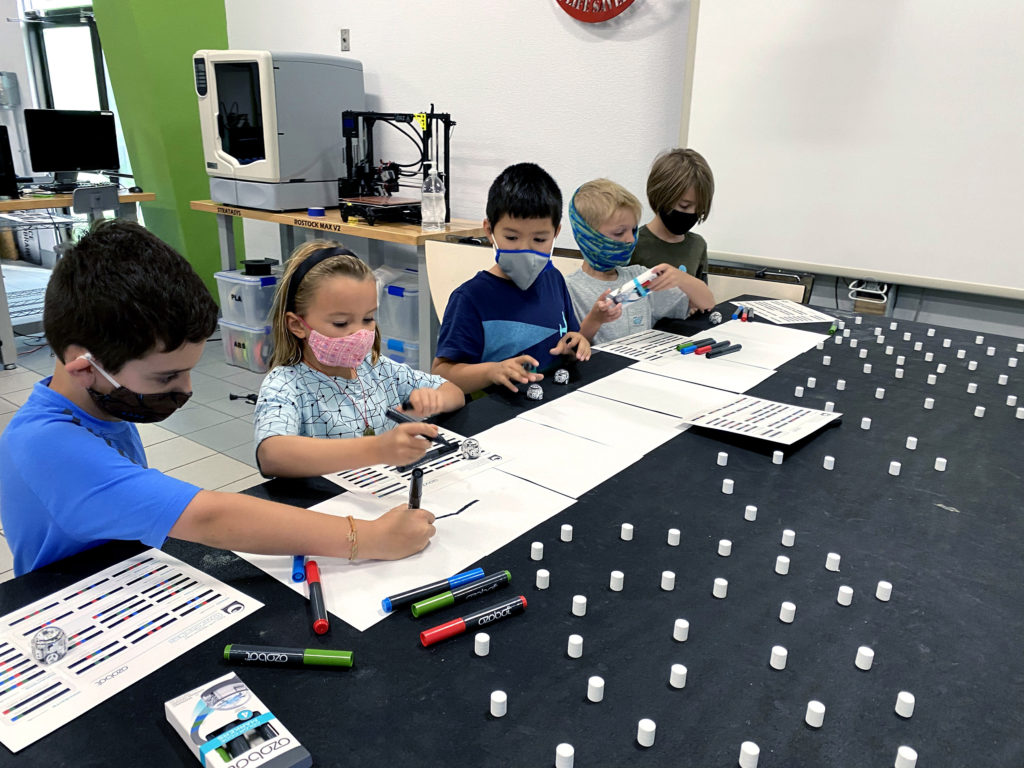
The center kept the focus on solutions by initiating and spearheading projects that could assist other businesses and organizations to remain open too. For example, the Student Community Innovation Program (SCIP) set up two teams. The product team worked on antimicrobial touchless door handles for local businesses. The education team focused on how to relay safety information and protocols to younger students. Twelve students created COVIDudacation.net, an educational platform to teach about dangers of the virus and best practices for remaining safe. By the end of 2020, that website had received more than 2,000 visits.
As for their own programming, Faulhaber says the center had to adapt to safely continue Summer Camp and other projects. At first, the summer courses were modified to be partially virtual. However, after instituting common COVID-19 regulations like hand sanitizer accessibility, taking temperatures, and wearing masks, the Summer Camp was able to continue as an in-person learning experience.
A community of science advocates
The center has been able to thrive, especially during the pandemic, in large part due to the generosity of volunteers who give their time. In 2020, hundreds of adult and student volunteers contributed 67,380 hours of work. And interest is increasing: in 2020, applications to volunteer at the Fab Lab rose 86-percent over the prior year.
Many volunteers are students. Now a senior at Pine View High School, Julia Kourelakos began volunteering at the science center during her freshman year of high school. Since then, she has served as a Summer Camp instructor, teaching her own computer science course with a focus on coding and game design, and she now serves on the Student Proposals & Education Committee.
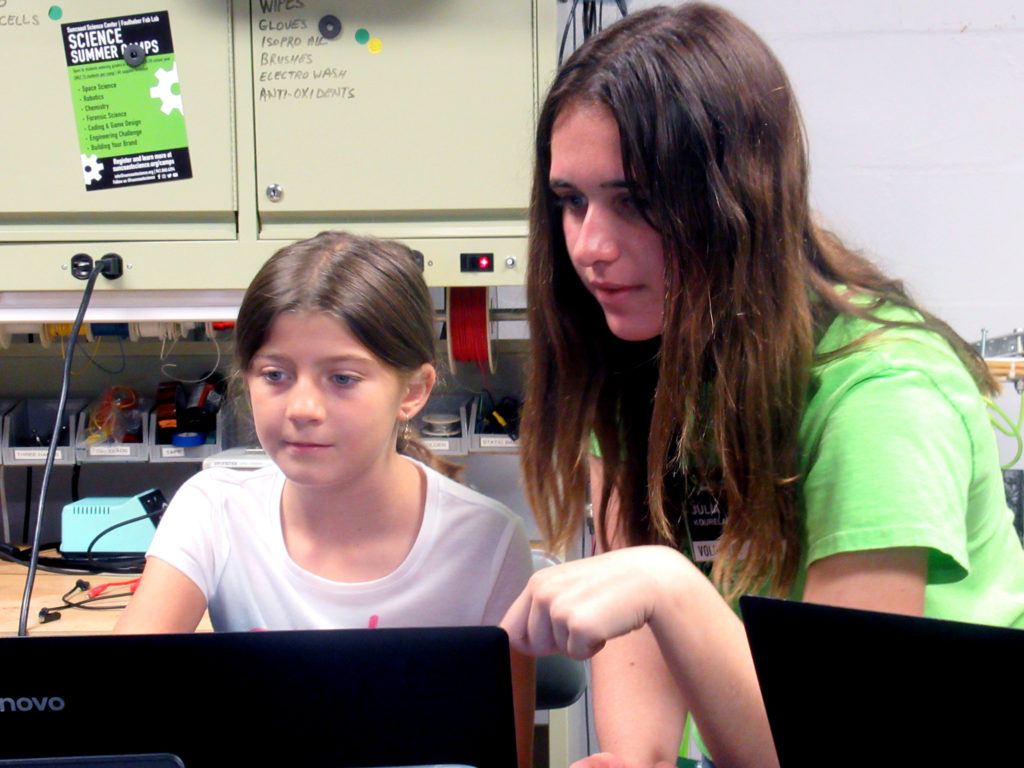
“I was just very drawn to how well organized and how committed they were to making STEM and science more accessible,” she says. “From the start of volunteering there, I really got the sense that they were committed to helping us as high schoolers grow as leaders, as people. It wasn’t like other volunteer jobs I had done where we were directed to do a task and weren’t really given autonomy. At the Center, they asked our opinion on things and gave us the opportunity to lead things, which really excited me.”
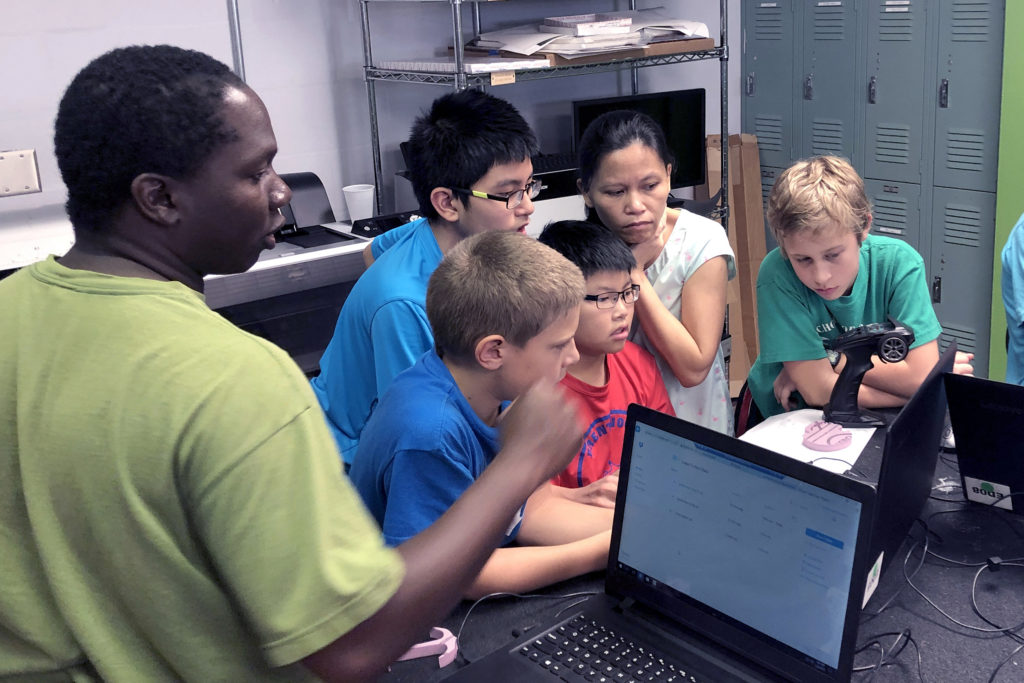
Dr. Janjay Gehndyu began mentoring student instructors at the science center shortly after it opened in 2014. He believes that lessons learned as a student instructor can be relevant to a variety of careers and even everyday life. “We try to teach them that teaching doesn’t always have to be formal learning like in a classroom. It can be informal. Our expectation for them is to see how they grow as people and to see how they’re developing,” says Gehndyu.
With COVID-19 still lurking, Faulhaber hopes the science center can continue to grow and innovate, using that secret sauce that makes SSC and the Fab Lab special.
“It’s project-based learning.” says Faulhaber. “It’s education, but it’s fun.”



You must be logged in to post a comment Login